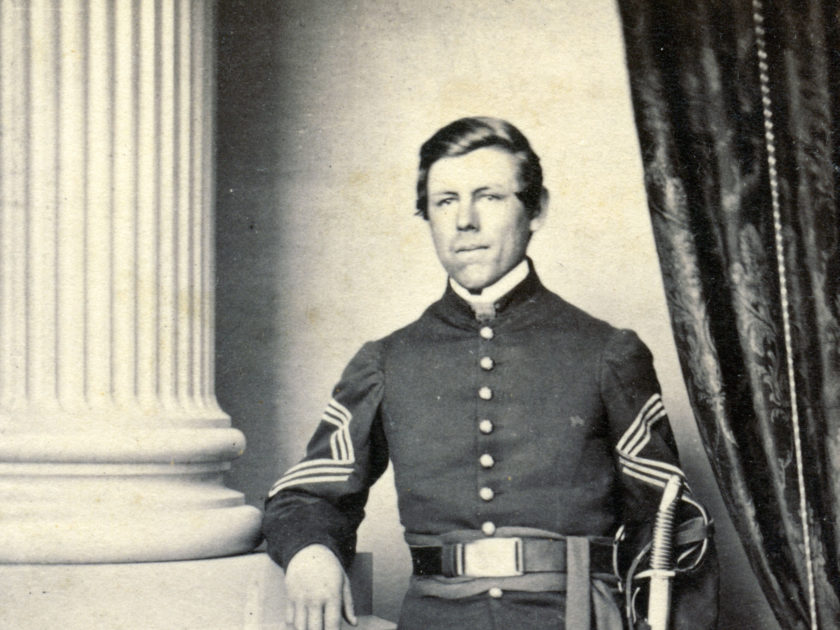Amidst the roar of battle at Trevilian Station, Va., on June 11, 1864, 1st Lt. Noble Delance Preston lay in a plowed field bleeding profusely. Only seconds earlier, he and his comrades in the 10th New York Cavalry, dismounted, had scaled a rail fence, and charged well-entrenched Confederates on the far side of the field. The rebels responded with a murderous fire into the ranks of the New Yorkers. Suddenly a minié bullet ripped into Preston’s right hip. Comrades carried him back, and laid him beneath the shade of some trees.

A surgeon examined him, determined the wound mortal, and decided to leave him behind to die. The doctor told Preston that he could not survive.
Preston, a former sergeant major who had been promoted to lieutenant and commissary duties, considered his predicament. He responded, “I had rather die with the boys than live with the rebs.” Noble remained there until the evening, accompanied only by a servant named Aaron. After nightfall, he was brought to the room of an old house with other wounded Union and Confederate soldiers.
Preston received good news when he learned that the assault was a complete success. He also received bad news after being again informed that he would be left behind. “I insisted that I would not voluntarily surrender myself to a lingering death in rebel prisons. If I were to die, I was determined it should be in an attempt to get away.”
The next morning, the surgeon relented. Preston was hastily loaded into an ambulance and survived the journey over rough roads to a hospital. A few months later he was discharged for disability with the rank of captain.
Preston received the Medal of Honor for his actions in 1889. Three years later his History of the Tenth Regiment of Cavalry New York State Volunteers was published. He lived until 1917.

